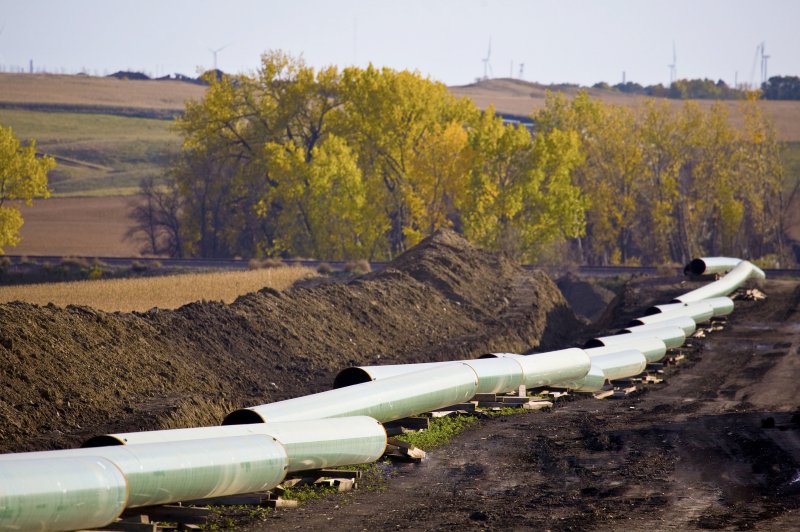Keystone XL planner TransCanada says project is fundamentally about the source of North American crude oil imports. Photo courtesy TransCanada
CALGARY, Alberta, Nov. 5 (UPI) -- The fundamental question over the Keystone XL debate is whether to use domestic oil or oil imported from Venezuela or the Middle East, TransCanada said.
TransCanada asked the U.S. State Department to pause the review process for the Keystone XL pipeline while it waits for route decisions from Nebreaska's government. The State Department refused the request.
Mark Cooper, a spokesman for the company, said in an emailed statement TransCanada would continue to focus on building the pipeline.
"The fundamental question remains: Do Americans want to continue to import millions of barrels of oil every day from the Middle East and Venezuela or do they want to get their oil from North Dakota and Canada through Keystone XL?" he said. "We believe the answer is clear and the choice is Keystone XL."
The U.S. Energy Information Administration reports Canada is by far the largest exporter of crude oil to the United States, sending about 2.7 million barrels of crude oil per day to the U.S. market on average for the week ending Oct. 30. The No. 2 exporter, Saudi Arabia, sent about 865,000 bpd to the United States for the week. Venezuela, the No. 4 exporter, sent about 595,000 bpd to the United States.
Compared with last year, Saudi and Venezuelan crude oil exports are down 27 percent and 39 percent, respectively. Only Iraq and Ecuador sent more crude oil to the United States for the week ending Oct. 30 when compared with last year.
The White House said this week the debate over Keystone XL, a scapegoat for questions over North American energy policies, would be based on the merits of the project and not political platforms.
"We believe that respecting the [review] process is, in fact, the way to eventually get at a decision that best supports our national interests here in the United States," State Department spokesman John Kirby said.
The U.S. Congress has tried several legislative efforts to force President Barak Obama's hand on the pipeline, moves the administration said would be met with a veto. The White House said a final decision was expected during the Obama presidency.















